Sometimes you wonder how the places look like, where your favorite artists come up with ideas and melodies that you fall in love with. With Bill Ryder-Jones, his hometown where he writes and records his music felt exactly like I imagined it to be. West Kirby is a small seaside town half an hour train ride away from Liverpool’s city centre. There are lots of small cafes, charity shops, fish and chips stores and a beautiful sea promenade. It’s the town Morrissey could’ve written Everyday Is Like Sunday about about if it wasn’t about a town in south England (no offense, though, West Kirbians). Bill was one of the founding members of The Coral who still record in the neighbor town Hoylake (which West Kirbians aren’t exactly fond of). Bill has written all his albums in West Kirby, though his fourth solo record Yawn was the first one that was actually recorded there.
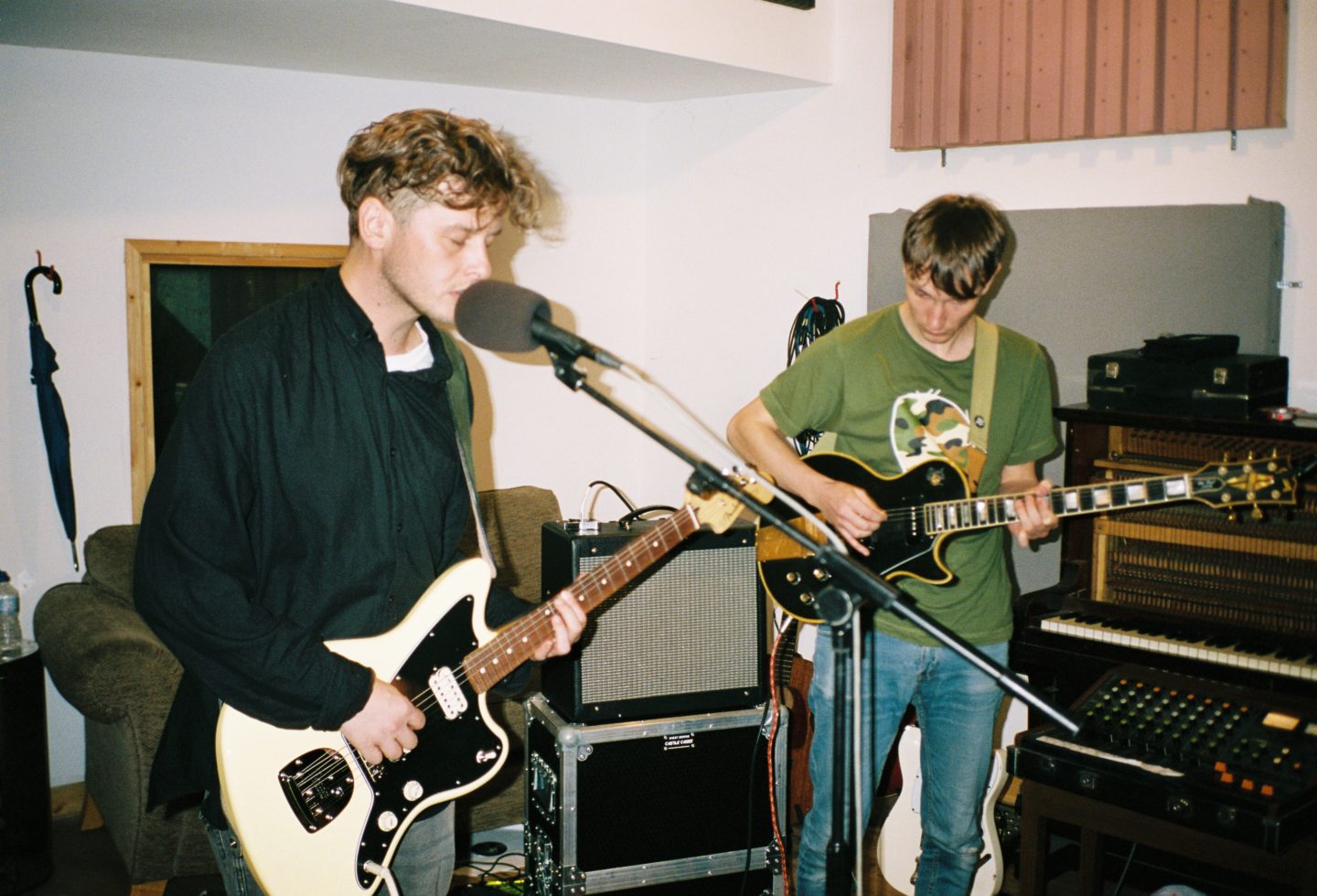
Bill Ryder-Jones and Liam Power in Yawn Studio, West-Kirby
Yawn will both excite newcomers and long-established listeners of his music. While his previous work and songwriting might have sounded very exclusive – in a way because it’s very personal – his newest songwriting is way more inclusive and broader. There are songs that people can listen to whether they’re heartbroken or have just fallen in love, are happy or sad. And that mixture is what makes it so exceptional. He explains:
‘The album is less about my childhood. There was quite a few current songs on West Kirby County Primary. A Bad Wind Blows In My Heart (Editorial first: Bill’s second album) was pretty much all about my childhood. West Kirby County Primary was half half, reflections on childhood and what was happening at the time of writing it. This one is way more how my life is at the minute, more current. A lot about the problems that I have when I have to deal with other people and their expectations. And my aim was for it to be slightly black comedy. I meant for quite a lot of it to be – I didn’t want it to be just misery. I wanted it to be which is very much the way I am – I do get very low, but I’ll always joke about it. A lot of the songs were intended to raise a bit of a smile. Hopefully some of the people will see the light in it because I’ve been told that its quite oppressive, dark and long, there’s not many chorusses. That was intentional.’
Even though there are songs such as And Then There’s You, Don’t Be Scared I Love You or No Ones Trying To Kill you – which imply to be love songs, Bill doesn’t like to use that word- or write explicit love songs:
‘There’s definitely love songs there. I only written two love songs about one specific person. I find it more interesting to acknowledge that its love. The problems with love: Ownership, jealousy, taking each other for granted & monotony and the rest of fucking eternity with one person and expectation, failure, those things are things I’m interested in. Affection is what people mistake for love in my songs. Its shown affection in all those songs, I’m either apologizing to someone I love. Don’t Be Scared I Love You is just a very specific person who thought I never really loved them. So I wanted to show it in a song. Thats probably the nicest thing I’ve ever done. I never let anyone into my world in terms of music I create. I never do anything for anyone except myself. That was nice of me. You’re welcome.’
A brother’s memory
What’s impressive about Yawn is that nearly every song has a length of over five minutes. And despite their length, they’re all very immersive and captivating with a lot of great and intense melodies to be discovered. Bill Ryder-Jones explains: ‘I had to shorten it. The whole album was one hour 15 minutes. I got it down to 57. It’s literally as long as possible. We compromised after me being a pain in the arse for a long time‘. The album was finished at start of this year. All of last year I was working on it. Came together quite late, it was all over the place. I wasn’t happy with the last record in truth. I don’t think its as a good record as I can do. This is one of my best records. There’s three or four songs I really love and would put on any of my records. But as a record, I think it failed a bit. I was happy to find that cover art of the album.’
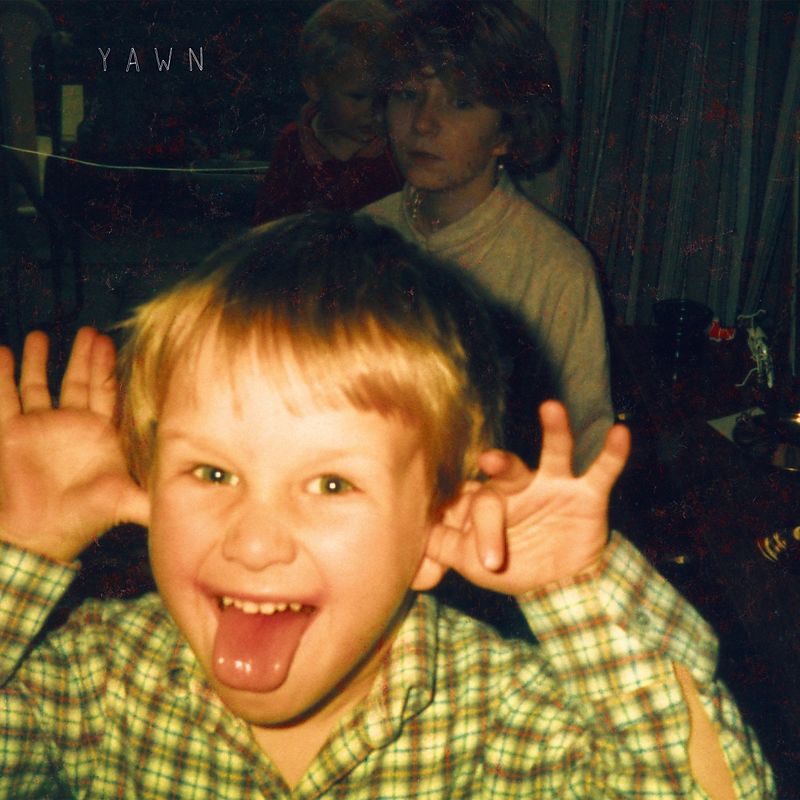
Bill’s brother Daniel on the artwork of ‘Yawn’
There are lyrics and statements on Yawn that could be worn on T-Shirts or be inked on your skin – and were funnily even designed as official BRJ merch. Lyrics such as ‚There’s a fortune to be had from telling people you’re sad‘ or ‚I remember what we did and when / and the smell of your breath / and even all the names of your dickhead friends‘. The latter is personally my favorite lyric out of many great lyrics on the album and many listeners will probably relate to it, knowing all dickhead friends of dickhead persons. Everyone knows that person they’re obsessed with who had to put up with their not good friends’, Bill says. And there’s a nice story about the new album cover art as well. It’s – as you would assume – an old family photograph that has a long history:
The photo on this album has a sweet backstory. With my elder brother Daniel, who passed away when I was a child, I have very little memories with. And what memories I have are family photographs. As I had this longing for a long time, I spent a lot of time as a child looking of photographs of him. I know them all inside out and that’s the world he exists in for me. And then, at the end of last year, our old babysitter got in touch and said that she had some old photographs of my brother and asked me if I’d like them. And I was sent this photograph thats quite evidently my brother and me, but I’ve never seen it. There’s no way of explaining what a strange feeling this is, when I picture his face I only see the photographs I have. That was really lovely to get this photograph. It just looks like he’s pulling a silly face, just behind him is his babysitter and just behind her you can ghostly see me. I thought that was quite funny with the album title Yawn. Theres this photo of my dead brother and here I am, 35 and still banging on about him. I thought, that’s quite funny.
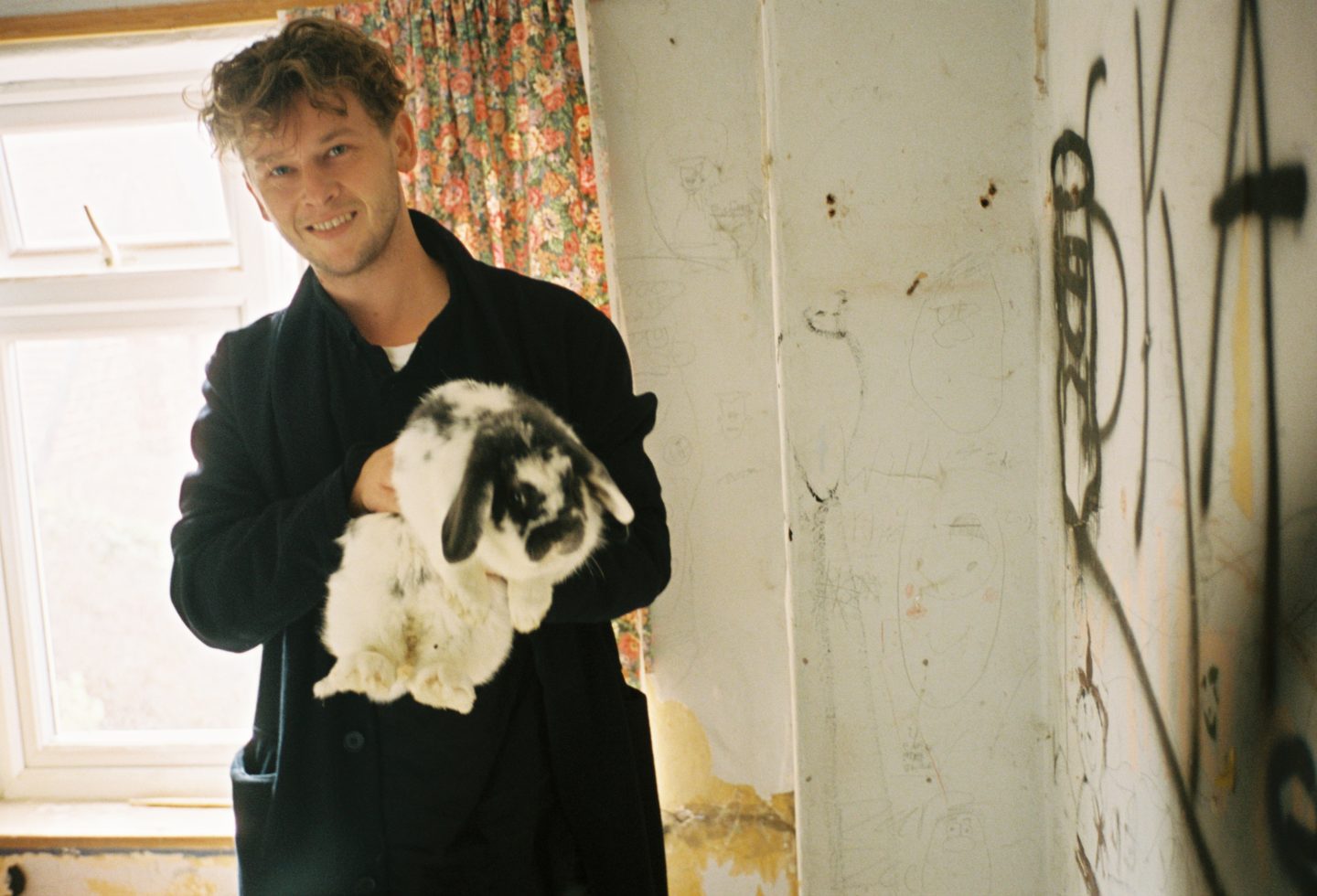
Bill Ryder-Jones in his mother’s house, West Kirby
‘I don’t want to tell anyone anything anymore’
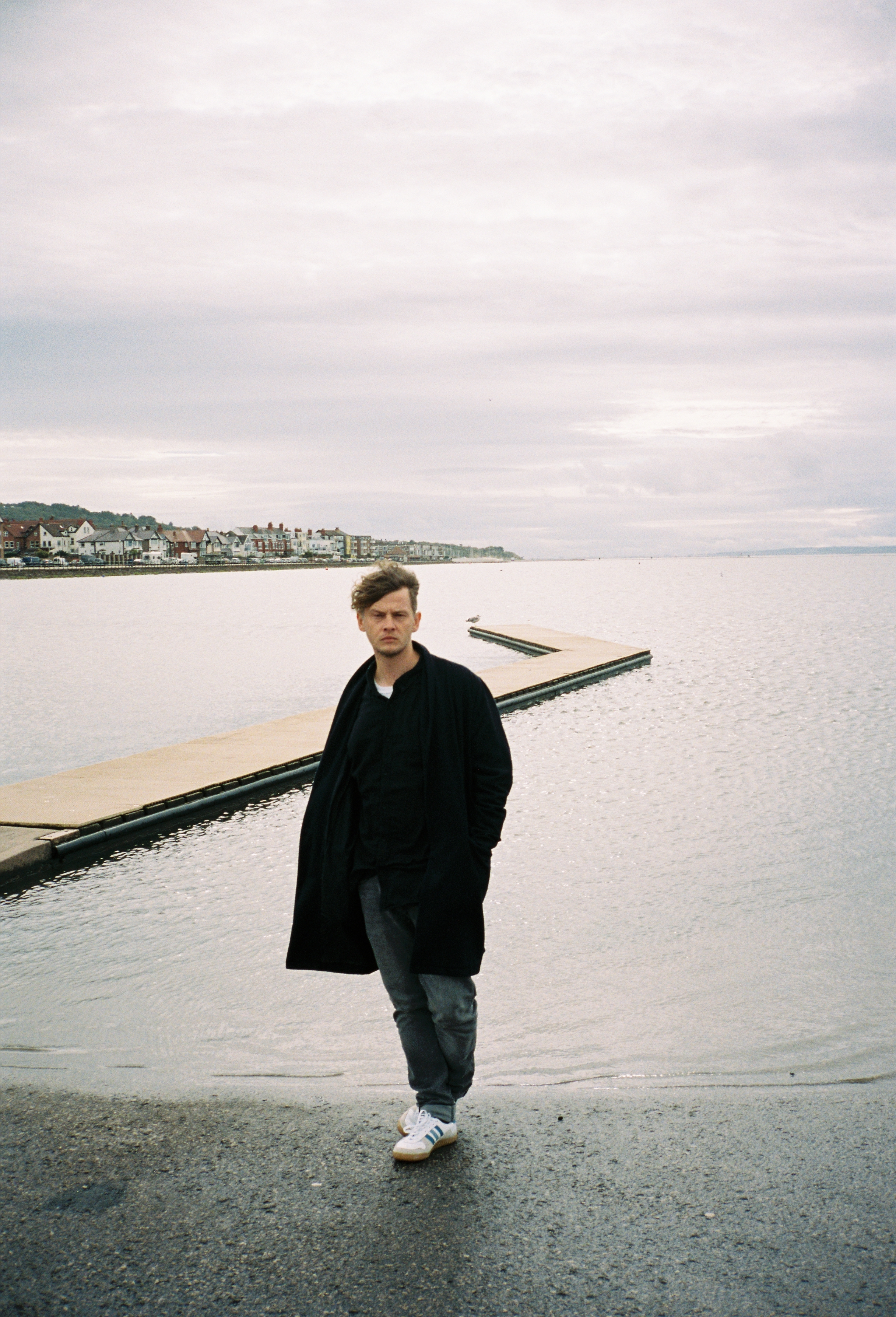
Bill Ryder-Jones at the Marine Lake in West Kirby
Whats also striking about Yawn is, that it uses less actual imagery of the place Bill lives in and spent most of his life. There have been references to seabirds, the ocean or actual places in Merseyside with the last album even being called West Kirby County Primary. Even though West Kirby is much more like many other seaside towns in the UK on the first sight, I could imagine the beautiful scenery of this place to play a part in his songwriting. But for Bill, who’s also lived in Scotland, Italy and the south of England, that isn’t necessarily the case:
I think I’ve I lived elsewhere, in a city, anywhere you live is gonna affect you. I try to consciously not try to write too much about the landscape of this area. You can get away from it a way. I tried not to have much imagery on the album. I wanted everything to be semi-direct. Like a conversation you might overhear. I didn’t want to be too specific anymore.
He continues: ‘You want to ask a question to the listener: Can you place yourself in the music? I don’t want to tell anyone anything anymore. Theres things and stories that have happened but the point is the observation. What I’m trying to do is explain a situation and give an observation how I understood this. Every time I make a statement on the album I’m very quick to question it.’
Although his origin can be actually traced down on Yawn there’s some words – especially in the lead single Mither that won’t be very familiar to people who aren’t from North-West England. Bill himself lived with his family in Greater Manchester before he moved at the age of six to Merseyside:
‘Isright is a Liverpudlian thing I like. Thats a reference to Mick Head (Editorial note: Michael Head from Liverpudlian band Shack.) Mither my Mum always says my mother to her dog Meg. It means ‚bother’. I quite like those words. When I was in school I was skidded for saying ‚now‘, ‚out‘, ending them in places where they don’t belong, that I really enjoy. I like those little strange anomalies in languages. I desperately didn’t want to be especially Northern. I like parts of the south equally as the north. I didn’t want people to think I’m a Northern troubadour. I don’t care.’
Embracing a healthier lifestyle
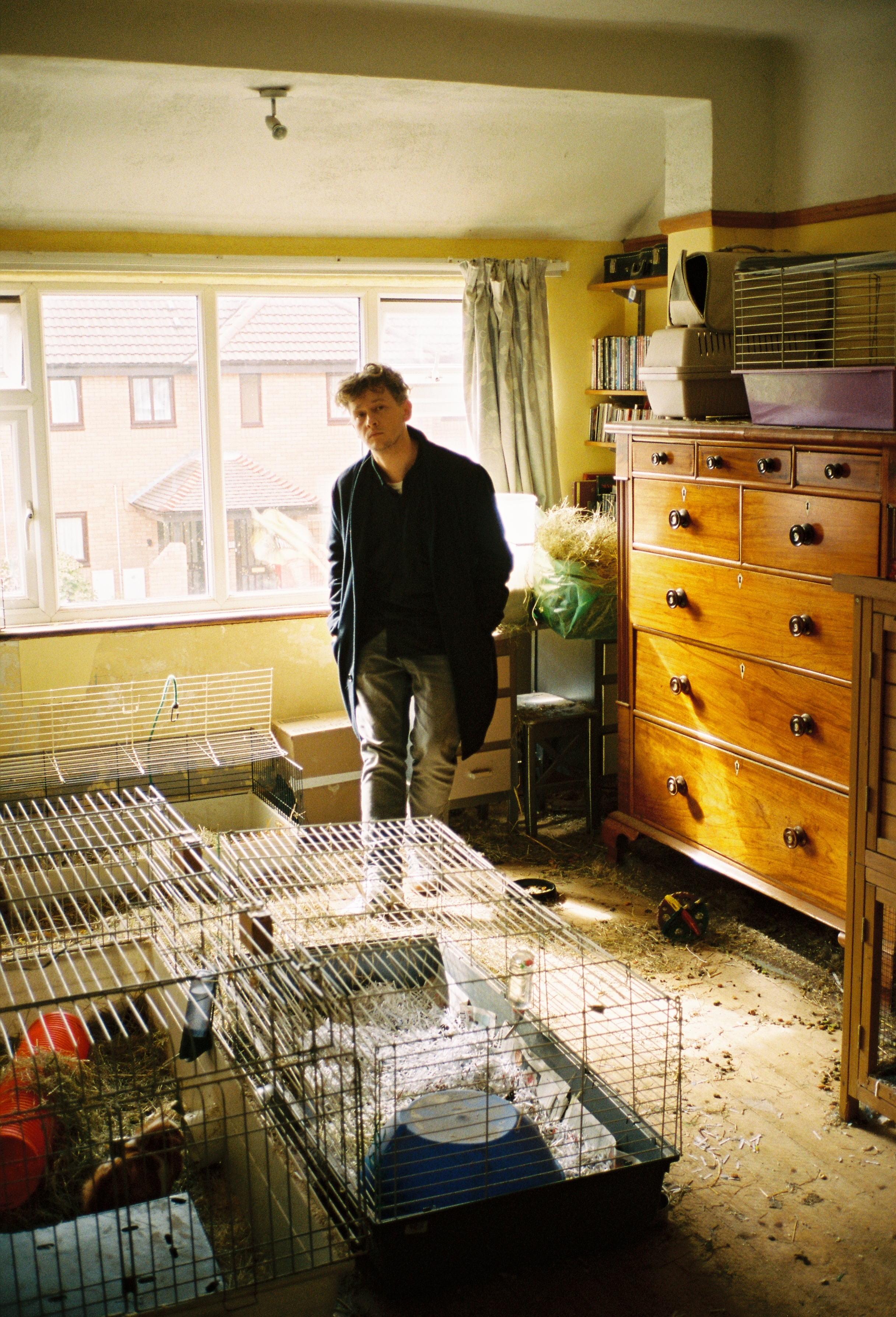
Bill Ryder-Jones in his mother’s house, West Kirby
Though there’s one motif which still plays a part in Bill’s work and life: His mental health. He’s outspoken about his condition, has been a patron of the Liverpool Mental Health Festival and did a documentary on it. Now, with turning 35 this year, he seems more concerned, aware and also conscious with his wellbeing. You’re 20s are a bit like Morrissey and then it gets better, he tells. Bill gets up early, swims nearly every morning, doesn’t take drinks with caffeine and quit down on drugs (except smoking, which is sort of his trademark). One song on Yawn is even called Recover.
‘I had those 10 to 12 years of numbing myself with every available thing. When I stopped drinking, it was because I didn’t recognize myself. I’ve had a moment what it was like when I was 18 and I didn’t have a bad word to say about anybody, was very kind and sensitive. I felt I change I’d become bitter and envious and angry, I was very angry towards the end of the year. I made a conscious decision to become back to how I was. No more medication, no more drink and no more treating people like shit. And now I feel very much like I did at 18 and now I remember why I took all the medication and drugs. I thought I’d hardened as I got older, which is absolutely not the case. I’m in tears all the time.’
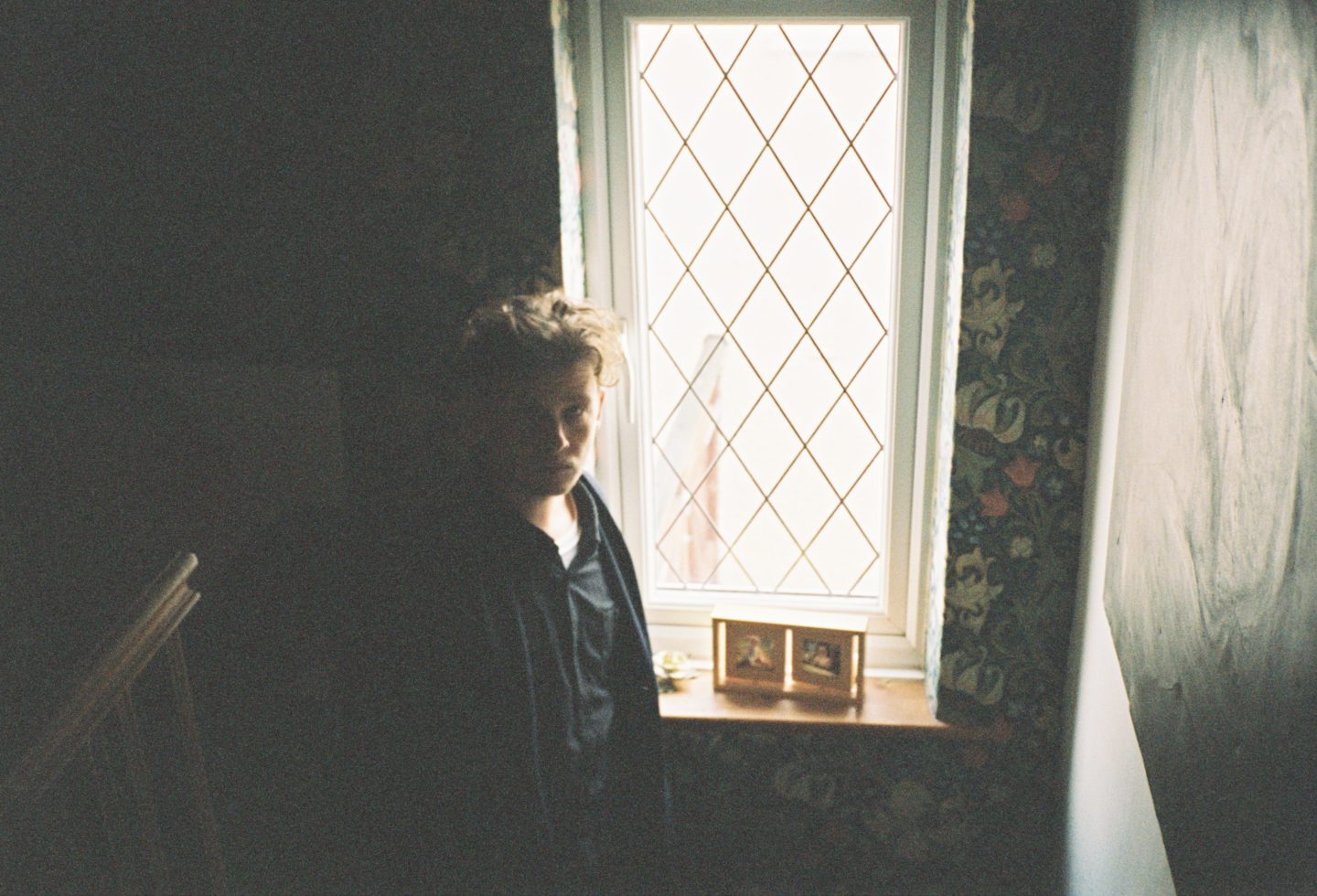
Bill in his mother’s house, West Kirby
But – as mentioned earlier – there is a fortune to be had even from sadness. And for Bill, that is his talent for writing astonishing lyrics and melodies. As for probably most artists – referring to all amazing literature and music ever created – he can craft this talent from loneliness or sadness:
‘I write better songs when I’m unhappy. When I’m happy I tend not to make music. I didn’t realize it but I was more unhappy than I thought that was. And now because of the changes I made I feel sorrow I haven’t felt in many many years. And as a result I’m writing a lot and really well. I forgot how easy it is to come up with melodies when you’re as lonely as I’ve been feeling, truthfully.
Listening back to that last record, It was so hard to make that record because I was content. I had loneliness, I had periods of ecstasy and happiness. Life was fine, I had a wonderful partner who I loved and who loved me, work was there. I write better when I am sad.
Although the finishing of songs it what takes the most time. Its the gaining of the melody thats where your mental state takes part. Once you’ve got the melody – me writing lyrics I just need to sit down and put hours in it until its not shit . Finding a melody doesn’t work like that thats why at the minute I’ve got so many. The ideas are just everywhere. That means I haven’t cleaned the flat in fucking three weeks. Sitting in my underpants playing the guitar and thinking I’ll have a new record by the start of the next year.’
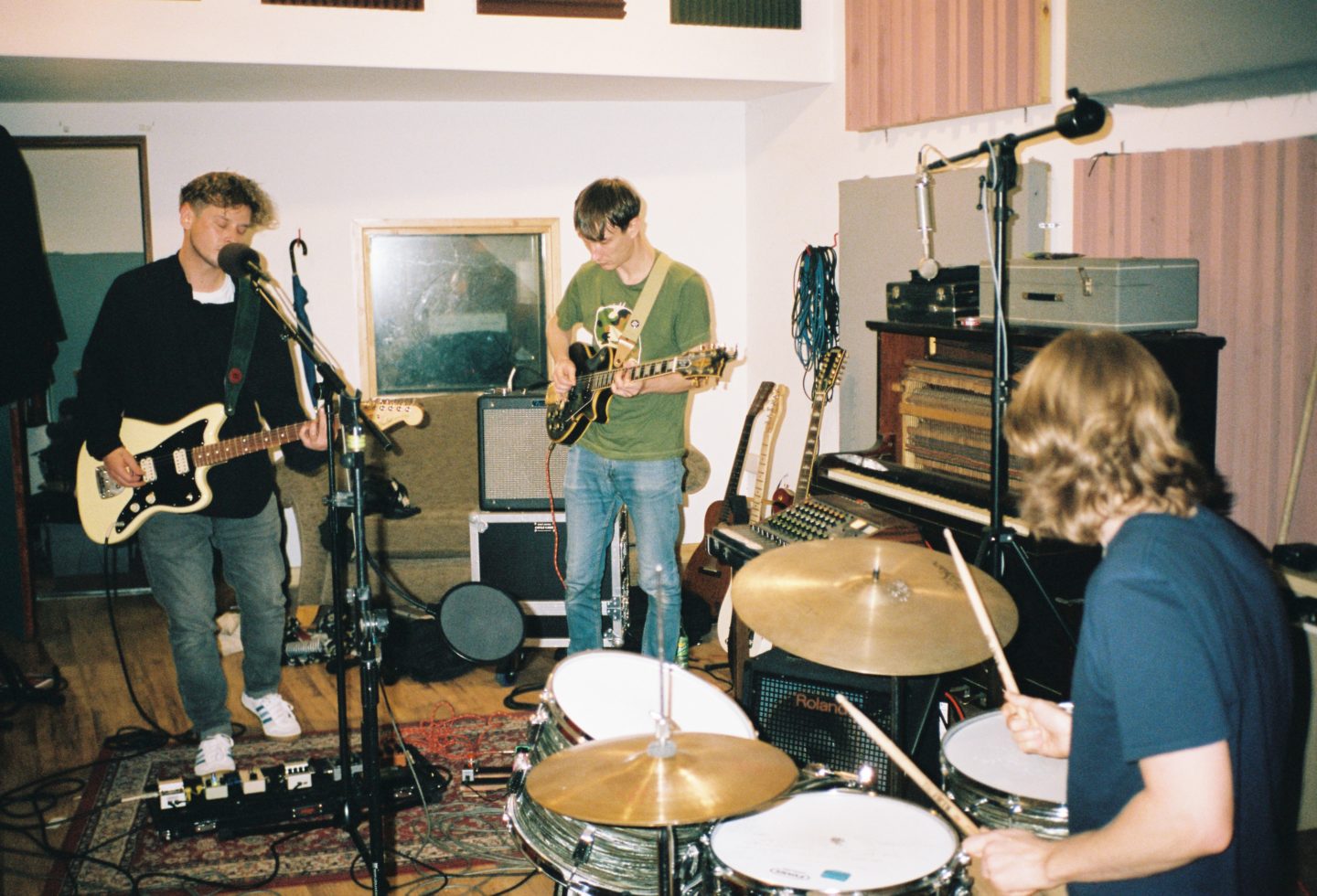
And that place where the melodies take shape and form is his own studio, Yawn. It’s located in an hidden ally near West Kirby’s town centre. He has taken it over from another musician, rebuild the place and recorded Yawn there. Liam Power (guitar), Phil Murphy (drums) and Rod Skipp (cello) recorded the album with him and will join him for his UK tour dates. Guest appearances on the album also come from Our Girl’s Soph Nathan as well as Esme and Sid and Naomi from Sea Monster. While it was a mess during the recording of his own album, he set the place up properly and produced young artists there such as Our Girl or songwriter Brooke Bentham. He first used it to record and produce the album during most of last year and now uses it to produce young bands and also, rehearse for his upcoming tour, which he and his band members Liam Power and Phil Murphy also do before our interview. Above the studio space, Bill has his own office where he overlooks the production.
‘The studio is called Yawn Studios because its where I made the record. The studio is modest and very good. I got very fortunate with it. I run it with Richard Hearst, I work as a producer here, he’s our in-house engineer. If people want they can pay a certain amount for me and him, and we have a lot of time coming up. The studio has been in this state since three months. Gintis, Brooke Bentham, Holly McVeigh has been here, The Orielles, I’ve been so busy. A great band from Wales called Kid Smoke, Hannah’s Little Sister. For a short period of time thats very good.’
As I leave Yawn Studios after more than five hours of being there and spending time with Bill, it’s become a bright and sunny September day in West Kirby despite being very Merseysideish- rainy and nasty – before. And it’s that opposites – not just in the weather in the Northwest of England – but also in Bill’s work that are so appealing to me. For me, Yawn is Bill Ryder-Jones’ most compelling, upright and also honest album to date and it shows him as a much grown-artist. It’s very much all about hope and passion here, I think, without turning too nostalgic.
All Photos by Louisa Zimmer for NBHAP.com
Yawn is out on 2nd November 2018 via Domino Records. Bill will be touring Europe with Gruff Rhys in November



